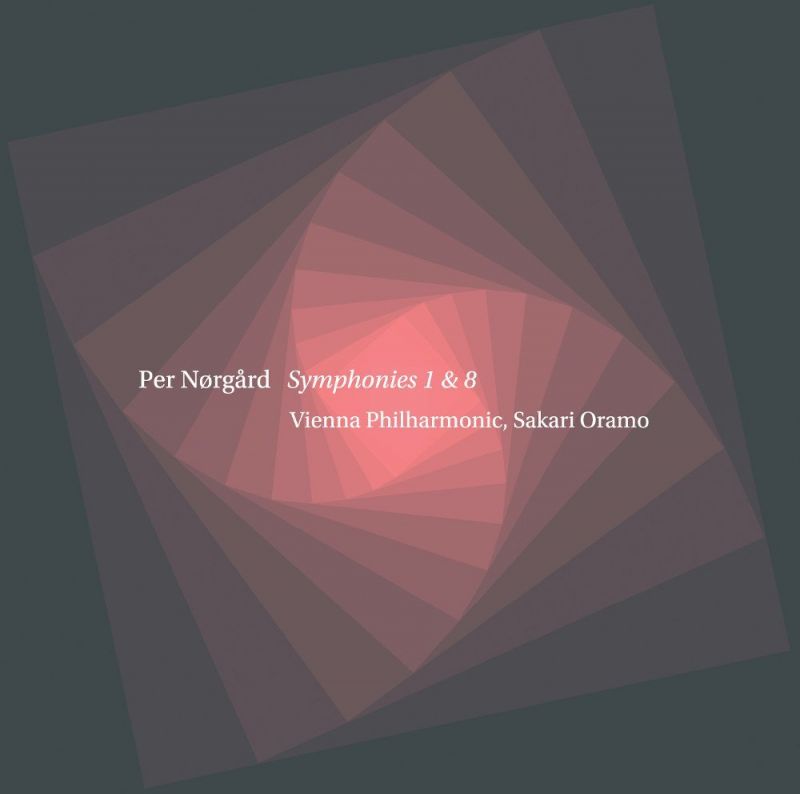NØRGÅRD Symphonies Nos 1 & 8
View record and artist detailsRecord and Artist Details
Composer or Director: Per Nørgård
Genre:
Orchestral
Label: Dacapo
Magazine Review Date: 08/2014
Media Format: CD or Download
Media Runtime: 57
Mastering:
DDD
Catalogue Number: 6 220574

Tracks:
| Composition | Artist Credit |
|---|---|
| Symphony No. 1, "Sinfonia austera" |
Per Nørgård, Composer
Per Nørgård, Composer Sakari Oramo, Conductor Vienna Philharmonic Orchestra |
| Symphony No 8 |
Per Nørgård, Composer
Per Nørgård, Composer Sakari Oramo, Conductor Vienna Philharmonic Orchestra |
Author: David Fanning
And yet, as has often been pointed out, the ideas of Nordic light against the background of darkness, of metamorphosis as a principle of life as well as of art, and of hard-won coalescence into fundamental acoustic properties (not excluding ‘tonal’ triads), are constant factors in an output as astonishing for its consistency as for its range. The Eighth Symphony may be relatively genial by comparison with its predecessors, including the gritty First. It doesn’t have the dizzying craziness of Nørgård’s Fourth and Fifth Symphonies, their sense of getting high on chaos and higher still on its artistic shaping. But it is still the work of a composer obsessed with the elemental qualities of musical movement and shape.
From the outset, cascading scalic motion is balanced against lines that push towards the upper limits of instrumental ranges, while other shapes anchor the middle of the texture, without ever quite declaring themselves as ‘themes’. The gambit is familiar from several of Nørgård’s earlier symphonies (certainly Nos 3, 4 and 6), and as there every moment feels full of potential, the product of a fertile imagination that seemingly grows in direct proportion to its deployment. Nothing smacks of effect-mongering or hand-me-down cliché.
Like the First Symphony, the Eighth is in three movements, the first being the longest and densest. The difference is that the finale of the Eighth, after a return to the first movement’s state of constant flux, culminates in a Lento visionario. Here it doesn’t seem over-imaginative to posit Sibelius as the godfather, especially where the opening cascades are transfigured.
Great to see this superabundantly imaginative music being taken up by an institution as traditionally minded as the Vienna Philharmonic. Honours are even with the Danish RSO and Segerstam in the First Symphony (coupled with No 2). But the premiere recording of No 8 is a must-have, and not only for followers of Nørgård and the 21st-century symphony. Dacapo’s recording is as beautiful as the Vienna Phil’s playing, and the essay by Jens Cornelius balances information with sensitive response.
Discover the world's largest classical music catalogue with Presto Music.

Gramophone Digital Club
- Digital Edition
- Digital Archive
- Reviews Database
- Full website access
From £8.75 / month
Subscribe
Gramophone Full Club
- Print Edition
- Digital Edition
- Digital Archive
- Reviews Database
- Full website access
From £11.00 / month
Subscribe
If you are a library, university or other organisation that would be interested in an institutional subscription to Gramophone please click here for further information.




